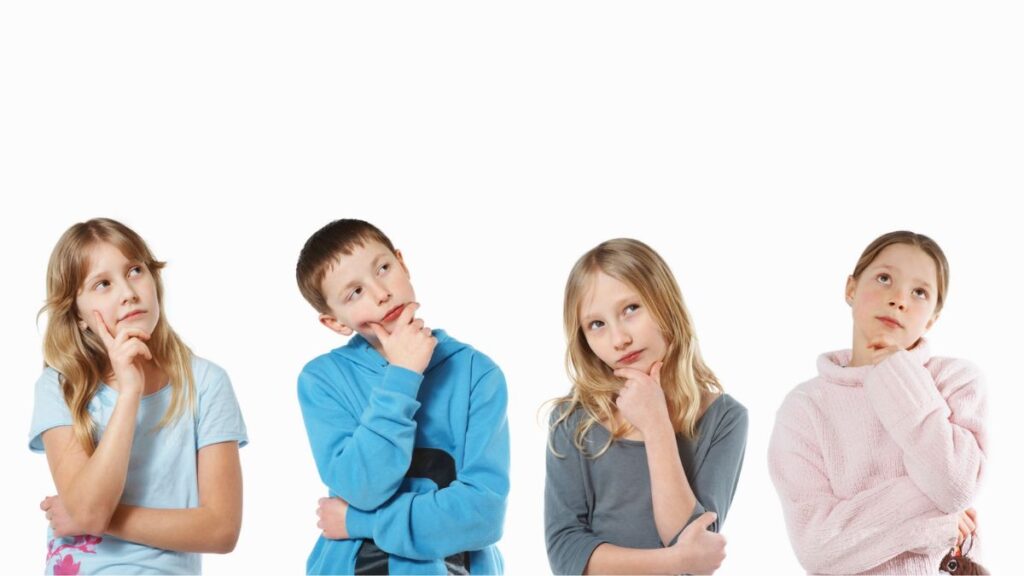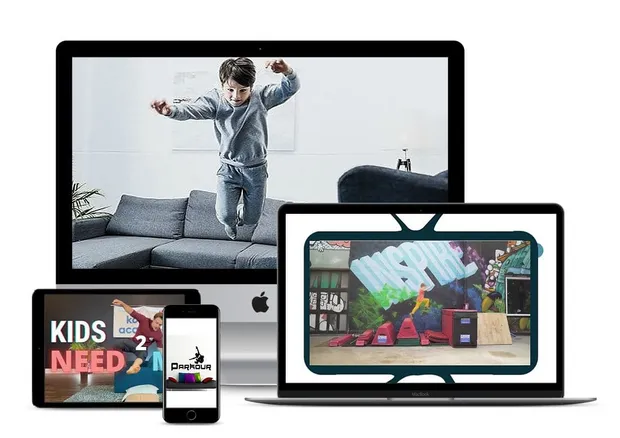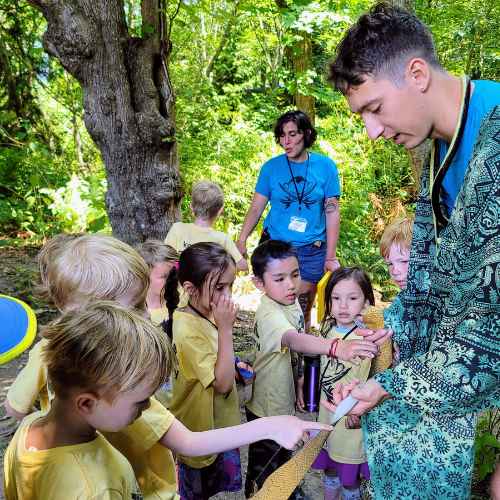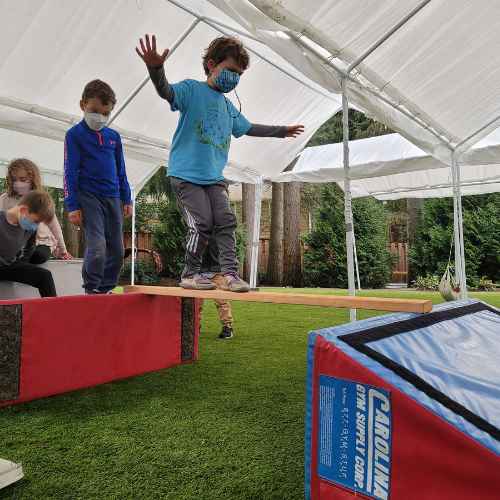
In the complex world of childhood development, decision making is the foundation of social emotional learning. As kids navigate the many realms of personal, academic and social life, making good decisions becomes more and more important.
Decision making isn’t just about right and wrong; it’s about evaluating options, anticipating outcomes and reflecting on choices made. This thinking process has a big impact on a child’s ability to form healthy relationships, be academically successful and develop a strong sense of self.
The 6 Step Decision-Making Process All Kids Need To Know
Teaching kids a structured decision-making process helps them handle situations thoughtfully and effectively. Here is the 6 step decision making process to help kids make responsible choices and think critically and be accountable.
1. Identify the Decision
The first step in responsible decision making is to identify that a decision needs to be made. This means to pinpoint the problem or opportunity. For kids this might be what to do after school, how to handle a disagreement with a friend or which extracurricular activities to do. Knowing a decision needs to be made sets the stage for a thoughtful and intentional process which can be visualized with a decision tree.
2. Gather Information
Once the decision has been identified, gathering information is key. This step means to get the facts, opinions and potential consequences of the decision. Kids can be encouraged to ask questions, seek advice from trusted adults and explore different sources to get a balanced view of their options. The more informed they are the better equipped they will be to make a good decision.
3. Evaluate Options
With information in hand, the next step is to evaluate the possible options. This involves weighing the pros and cons of each choice and considering how each aligns with personal values and goals. Children should be taught to think critically about the potential outcomes and to envision the short-term and long-term impacts of their choices. This step helps them develop analytical skills and enhances their ability to foresee consequences.
4. Make a Decision
After careful evaluation, it’s time to decide. This step involves choosing the option that best aligns with the gathered information and outcomes evaluated. For kids, making a decision can be empowering and help build confidence. They need to understand that making a choice is part of the process and it’s okay to make mistakes as these are opportunities to learn and grow.
5. Take Action
A decision once made needs to be acted upon. Acting means to implement the chosen option and put the plans into action. Children learn responsibility and commitment by following through on their decisions. This step reinforces the importance of accountability and that their choices have real outcomes.
6. Reflect on the Outcome
The final step in the decision-making process is reflection. After the decision has been implemented and the outcomes are seen, it’s important to review what happened. Did the outcome meet expectations? Were there any surprises? What could have been done differently? Reviewing the decision making process helps kids learn from their experiences and apply those lessons to future decisions so they can make even better choices next time.
By following these 6 steps, kids will develop decision making skills that will last a lifetime. These skills are foundational for personal growth, academic success, and positive social interactions, so they are prepared to face life’s challenges with confidence and resilience.
How These Steps Form the Foundation for Responsible Decision-Making
The six-step decision-making process is more than a structured guide; it serves as the foundation for cultivating responsible decision-making in children. Each step plays a crucial role in developing key cognitive and emotional skills that underpin thoughtful and ethical choices.
First and foremost this process teaches critical thinking. By getting kids to gather information and weigh the evidence we teach them to consider multiple perspectives before making a choice. This helps with better decision making and develops an inquiring mind so they ask questions and seek more information in all sorts of situations. Critical thinking is a life skill that supports academic success, personal growth and problem solving.
Also, the six-step process fosters a sense of accountability and self-awareness. When children are guided to reflect on their decisions and understand the consequences, they become more mindful of their actions. This reflection helps them recognize the impact of their choices on themselves and others, promoting empathy and responsible behavior. As they experience the outcomes of their decisions, they learn to take ownership, which is vital for personal development and social interactions.
Finally this structured approach builds confidence and resilience. Decision making can be scary especially for young minds who have to make many choices every day. By giving them a clear framework kids feel confident to take on decisions. They learn that mistakes are part of the process and that every decision whether successful or not is a learning opportunity. The resilience developed through repetition and reflection will help them to handle more complex decisions as they get older.
Using Smart Decision-Making To Foster Critical Thinking Skills
Teaching kids smart decision making helps them think critically. By breaking down choices into steps like gathering info and weighing options they learn to think before they decide. This shows them how to look at different sides of a problem and choose the best solution. When they practice making decisions they get better at thinking critically in all areas of life. This sets them up to tackle anything and make good choices as they grow.
Decision-Making Activities To Explore With School-Aged Kids
Engaging school-aged kids in decision-making activities is a fun and effective way to enhance their skills. From simple yes no choices to complex social emotional learning activities, here are some decision-making activities that you can try for your kiddo:
Ages 4-6
For school-aged kids ages 4-6, decision-making activities should be fun and engaging while still teaching valuable skills. Here are a few activities to explore:
Story-Based Decision Making
Engage children in storytelling where they encounter dilemmas and have to make choices for the characters. Encourage them to discuss different options and explain why they would choose a particular course of action.
Simple Chore Planning
Involve children in decision-making regarding household chores. Offer them a few options for tasks they can help with and let them choose which ones they prefer. This fosters independence and responsibility.
Ages 7-9
For school-aged kids aged 7 to 9, decision-making activities can be both fun and educational. Here are a few ideas to explore:
Role-Playing Scenarios
Create scenarios relevant to their daily lives, such as resolving conflicts with friends or deciding how to spend free time. Let children take on different roles and work through the decision-making process together.
Budgeting Games
Introduce basic concepts of budgeting by giving children a set amount of play money to “spend” on items they want. Guide them in making choices based on their preferences and available funds, possibly using a decision tree to map out their options and outcomes.
Making Collaborative Decisions
Engage children in group activities where they have to work together to make a decision. For instance, planning a class party or choosing a game to play during recess. This helps them learn how to consider others’ opinions and reach a consensus.
Ages 10-12
For school-aged kids between 10 and 12, there are plenty of fun social emotional learning activities that help develop their critical thinking skills.
Debating Different Perspectives
Present children with controversial topics or ethical dilemmas and encourage them to explore different viewpoints. Guide them in discussing the pros and cons of each perspective before forming their own opinions.
Project-Based Decision Making
Engage children in planning and executing a project of their choice, such as organizing a community event or starting a small business. Encourage them to make decisions regarding logistics, budgeting, and delegation of tasks.
Pros and Cons List
Teach kids to make pros and cons lists for decisions they face. Whether it’s choosing an after-school activity or deciding on a weekend plan, writing down the positives and negatives elps them visually assess their choices and make more balanced decisions.
Building Healthy Decision-Making Habits
Building healthy decision-making habits is essential for navigating life’s challenges effectively. Here are some key strategies to help cultivate these habits:
Finding Resilience and Adaptability
Developing resilience and adaptability is essential for fostering healthy decision-making habits in children. Resilience enables them to bounce back from setbacks and challenges, while adaptability empowers them to adjust to new situations and changes effectively.
Encourage Reflection
Teach children to reflect on past decisions and outcomes. You can use a decision tree to help them understand that setbacks and mistakes are opportunities for growth, not failures. By reflecting on what went well and what could be improved, children develop resilience and learn to adapt their approach in future situations.
Emphasize Flexibility
Teach kids the importance of being flexible and open-minded when faced with unexpected changes or obstacles. Help them understand that not everything will go according to plan, and it’s essential to adapt and adjust their approach accordingly.
Model Healthy Decision-Making
Lead by example. Demonstrate ethical decision-making and resilience in your own life. Show children how to approach challenges with a positive attitude and adapt when things don’t go as expected. Your actions speak louder than words and can have a significant impact on shaping their habits and mindset.
Fostering responsible decision-making skills in children is a vital component of their social-emotional development. By teaching them a structured approach and engaging them in age-appropriate activities, we equip them with the tools they need to navigate personal, academic, and social challenges.
Building healthy decision-making habits further strengthens their ability to make thoughtful, informed choices that align with their values and goals. As children grow and practice these skills, they gain confidence, critical thinking abilities, and resilience, setting the stage for a lifetime of wise and responsible decisions.
GET Access to the ULTIMATE PLAY DATE PACKAGE (Value: $49) for FREE!


7-Day Crystal Shard Adventure
Unleash your child’s potential with our 7-day crystal shard movement adventure!


